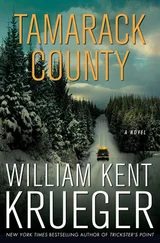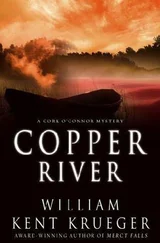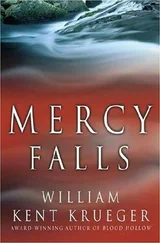William Krueger - Ordinary Grace
Здесь есть возможность читать онлайн «William Krueger - Ordinary Grace» весь текст электронной книги совершенно бесплатно (целиком полную версию без сокращений). В некоторых случаях можно слушать аудио, скачать через торрент в формате fb2 и присутствует краткое содержание. Жанр: Триллер, на английском языке. Описание произведения, (предисловие) а так же отзывы посетителей доступны на портале библиотеки ЛибКат.
- Название:Ordinary Grace
- Автор:
- Жанр:
- Год:неизвестен
- ISBN:нет данных
- Рейтинг книги:4 / 5. Голосов: 1
-
Избранное:Добавить в избранное
- Отзывы:
-
Ваша оценка:
- 80
- 1
- 2
- 3
- 4
- 5
Ordinary Grace: краткое содержание, описание и аннотация
Предлагаем к чтению аннотацию, описание, краткое содержание или предисловие (зависит от того, что написал сам автор книги «Ordinary Grace»). Если вы не нашли необходимую информацию о книге — напишите в комментариях, мы постараемся отыскать её.
Ordinary Grace — читать онлайн бесплатно полную книгу (весь текст) целиком
Ниже представлен текст книги, разбитый по страницам. Система сохранения места последней прочитанной страницы, позволяет с удобством читать онлайн бесплатно книгу «Ordinary Grace», без необходимости каждый раз заново искать на чём Вы остановились. Поставьте закладку, и сможете в любой момент перейти на страницу, на которой закончили чтение.
Интервал:
Закладка:
Danny backed away and turned and hightailed it out of the clearing with Jake and me at his heels. When we were a good distance away and the wall of bulrushes blinded his uncle to us I said, “What’s with him?”
Danny said, “I don’t know him very well. He’s been gone a long time. There was some kind of trouble and he had to leave town.”
“What kind of trouble?” Jake asked.
Danny shrugged. “Mom and Dad don’t talk about it. Uncle Warren showed up last week and my mom took him in. She told my dad she had to. He’s family. He’s not really so bad. Sometimes he’s kind of funny. He doesn’t like staying in the house though. He says walls make him feel like he’s in jail.”
We walked back to where the river ran near Danny’s house and we climbed the bank and Jake and I went our way toward home and Danny went to deliver his uncle’s message to his mother. I wondered what exactly he would tell her.
We reached our yard and Jake started up the front steps but I hung back.
Jake said, “What’s wrong?”
“Didn’t you see?”
“See what?”
“Those glasses Danny’s uncle had.”
“What about them?”
“They don’t belong to him, Jake,” I said. “They belonged to Bobby Cole.”
Jake stared at me a moment dumb as a brick. Then the light came into his eyes.
8
That evening my grandfather came to dinner. He brought his wife, a woman who was not my mother’s mother, a woman named Elizabeth who’d been his secretary and then became more to him. My real grandmother had died of cancer when I was too young to remember her, and Liz-she insisted we call her Liz, not Grandma-was the only grandmother I knew. I liked her and Jake and Ariel liked her too. Though my father wasn’t fond of my grandfather it was clear that he felt differently about Liz. Only my mother had problems with her. With Liz she was polite but distant.
My mother fixed cocktail martinis which my father, as always, declined and we all sat in the living room and the adults conversed. My grandfather spoke of the influx of Mexican farmworkers and how it was bringing an unwelcome element to the valley and my father asked how the farmers were supposed to get the work done without the help of the migrants. Liz said that when she saw the migrant families in town they were always clean and polite and the children well behaved and she felt bad that often the entire family, young children and all, had to labor in the fields to earn a living. My grandfather said, “If they’d just learn to speak English.”
Jake and I often suffered through this kind of discussion in silence. No one asked our opinion and we didn’t feel obliged to offer it. My mother had prepared roasted chicken and stuffing and mashed potatoes and asparagus. The chicken was burned and dry and the gravy lumpy and the asparagus tough and stringy but my grandfather raved. After dinner he took Liz home in his big Buick. My mother and Ariel went to practice with the New Bremen Town Singers, a vocal group my mother had formed two years earlier. They were going to sing the chorale that Ariel had composed for the Fourth of July celebration. My father went to his office in the church and Jake and I were left to do the dishes. I washed and Jake dried.
“What should we do?” Jake stood with a clean plate dripping water onto the old linoleum.
“About what?”
“Bobby’s glasses,” Jake said.
“I don’t know.”
“Maybe he found them. You know, just found them by the tracks where Bobby got hit.”
“Maybe. If you don’t hurry up and dry that damn plate there’s going to be a lake on the floor.”
Jake commenced to wiping with his dish towel. “Maybe we should tell somebody.”
“Who?”
“I don’t know. Dad?”
“Yeah and we’ll have to tell him we lied about how we found the body. You want to do that?”
Jake looked sullen and then he looked at me as if I was responsible for the tough position we were in. “If you’d told the truth to begin with.”
“Hey, you were the one who didn’t say anything about Danny’s uncle. I just played along. Remember?”
“If we’d left when I wanted to, I wouldn’t’ve had to lie.”
“Yeah, well, you did lie. And funny thing, you didn’t stutter at all while you were doing it. What do you think that means?”
Jake put the dried plate on the counter and took the next in the drainer. “Maybe we could tell Ariel.”
I worked an S.O.S pad over the bottom of the roasting pan my mother had used to cook the chicken and on which she had, in the process, grafted blackened skin. “Ariel’s got enough to worry about,” I said.
I didn’t even think about telling my mother nor did Jake. She was a woman much consumed by the fiery passions of her own life and the truth anyway was that Ariel was her favorite and generally my mother left the business of dealing with her sons to their father.
Jake said, “What about Gus?”
I stopped scrubbing. Gus wasn’t a bad suggestion. He’d been kind of strange on Saturday in the back of Halderson’s Drugstore but that had been the effect of the beer and the other odd circumstances of that horrible moment which I would gladly have forgotten if I could. Maybe enough time had passed that Gus would be able to offer counsel that was more considered. “All right,” I said. “Hurry up and finish and let’s go see him.”
By the time we crossed the street and approached the side door that led to the church basement and to the room where Gus slept it was twilight and the tree frogs and the crickets were kicking up a pleasant racket. Gus’s Indian Chief was parked in the church lot along with a couple of cars that I didn’t recognize. The light was on in my father’s office and through the window came the beautiful sweep of Tchaikovsky’s Piano Concerto No. 1. My father kept a record player in his office and a shelf of recordings that he often listened to as he worked. This piano concerto was one of his favorites. We went in the door and at the bottom of the stairs we stopped cold. In the center of the basement under the glare of the unshielded bulb a card table had been set up and around it were Gus and three other men. There were cards on the table and poker chips and the air was full of cigarette smoke and beside each man’s stack of chips there was a bottle of Brandt beer. I knew all the men. Mr. Halderson, the druggist. Ed Florine, who delivered mail and was a member of my father’s congregation. And Doyle, the cop. The play stopped the moment the men saw us.
Doyle smiled big. “Busted,” he said.
“Come on in,” Gus said and beckoned us with his hand.
I went right away but Jake hung back on the stairs.
“Just a friendly poker game,” Gus said. He put his arm around me and showed me his cards. He’d taught Jake and me about poker and I could see that he had a good hand. A full house, deuces over queens. “No big deal,” he said, “except that it might be best if your father didn’t know about it. Okay?”
He spoke quietly and I understood why. The furnace in the corner of the basement was in need of repair. Gus had been charged with fixing it but because we were in the middle of summer he was in no hurry. The ducts had all been disconnected and stuffed with rags to prevent basement noise from channeling into the sanctuary and community room and my father’s office. Between the rags and the Tchaikovsky the sound of the card game wouldn’t have reached my father but it was clear to me that Gus didn’t want to take chances.
“Sure,” I said quietly.
Gus looked at Jake. “How about you, buddy?”
Jake didn’t reply but he gave a shrug that signaled his reluctant consent.
Gus said, “Did you need something?”
I looked at the men around the table who composed almost the same group as had been present in the drugstore the day we found the body and who seemed no more attractive to me as confidants now than they did then.
Читать дальшеИнтервал:
Закладка:
Похожие книги на «Ordinary Grace»
Представляем Вашему вниманию похожие книги на «Ordinary Grace» списком для выбора. Мы отобрали схожую по названию и смыслу литературу в надежде предоставить читателям больше вариантов отыскать новые, интересные, ещё непрочитанные произведения.
Обсуждение, отзывы о книге «Ordinary Grace» и просто собственные мнения читателей. Оставьте ваши комментарии, напишите, что Вы думаете о произведении, его смысле или главных героях. Укажите что конкретно понравилось, а что нет, и почему Вы так считаете.












